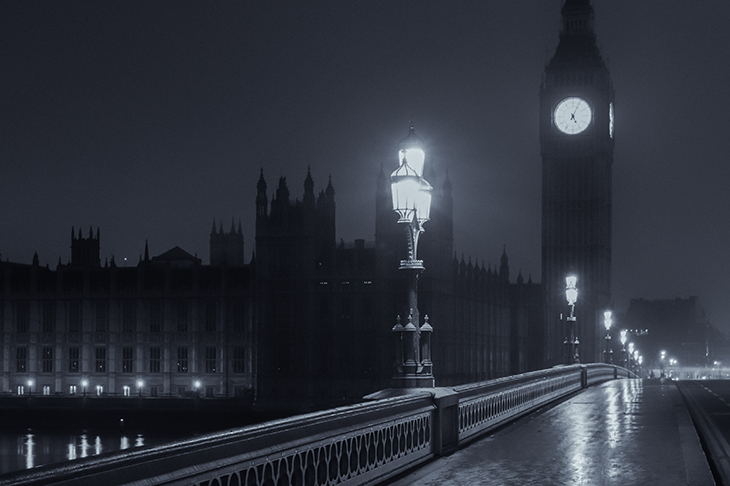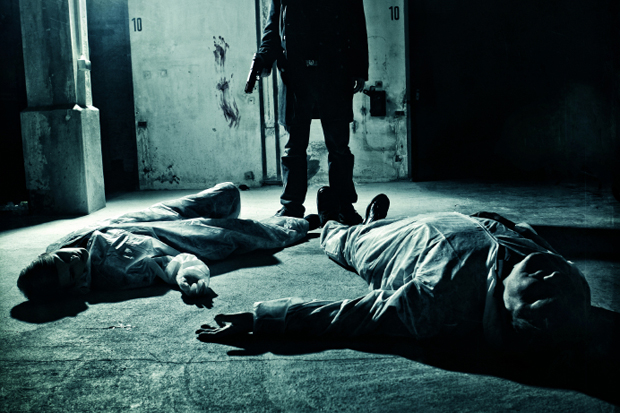The long gestation period of Brexit has allowed authors to plan and write and publish novels in time for the big day. Alan Judd’s Accidental Agent (Simon & Schuster, £12.99) is a spy thriller set during the EU negotiations. Charles Thoroughgood is the head of MI6. The secret service is forbidden from spying on the EU, but when an EU official volunteers information about the negotiations, it seems too good an opportunity to miss. The trouble is, the mole — known only by the code name Timber Wolf — might not actually be real.
Thoroughgood investigates the veracity of the source, taking the place of Timber Wolf’s usual contact, and what he discovers unsettles and surprises him. Another strand of this intriguing book involves a possible terrorist hiding in plain sight. A close friend of Thoroughgood’s has married into a Muslim family. This friend has the passion of the recently converted, but could this signal a move towards extreme behaviour? On every side the shifting sands of identity both entice and threaten. The novel very cleverly manages to exist within the Brexit process: whatever happens on that score, this story will still work, and still have human relevance.
In The Friends of Harry Perkins (Scribner, £12), Chris Mullin takes a very different approach to the same situation. Set some years after Brexit, it deals with the Labour party’s attempts to regain power in a Britain that trundles on, a little more isolated, a lot more unruly. This is a belated follow-up to A Very British Coup, which featured the Labour MP Harry Perkins as its hero. Now the ‘friends’ of Harry promote one of their number, Fred Thompson, as a new leader of the party for a new age. Laughs, thrills and intrigue ensue, and of course lots of underhand behaviour. It’s all done with a light touch, which jars somewhat with the moments of extreme tragedy.
The plot, such as it is, follows Thompson’s attempts to uncover corruption in the Tory party. It comes across as a fantasy novel, a daydream — if only this could happen, all would be well with the country! Because of this, there’s a fair bit of belief confirmation. A strange book. I wonder what its true purpose is, beyond its political intent. But it’s readable and very entertaining, and should appeal to both sides of the divide. A book that seeks your X in the ballot box.
In Loyalties (Bloomsbury, £12.99), Delphine de Vigan explores different types of loneliness within the setting of a high school. Her previous novel, Based on a True Story, was a brilliantly concentrated tale of identity theft rewritten as existential crisis. This new one is a little woollier, offering four viewpoints of the same series of events, as 13-year-old Théo and his friend Mathis succumb to the delights of alcohol, causing distress for Cécile, Mathis’s mother, and for Hélène, a teacher who desperately tries to save Théo from self-destruction.
Cécile is further troubled when she finds out that her husband is leading a secret and very disturbing life online. Sadly, the husband is a bit of a caricature; I really wanted to know more about him and his hidden personality. The adults’ stories are told from the first-person perspective, the schoolboys seen from a distance. Théo’s alcoholic haze is marvellously depicted, language itself succumbing to one drink too many. In fact, the need to escape is strong throughout, for adults and children; no matter how loyal we might be, at some point we have to let people live. Or die. Which leads to a painful ending.
Un-Su Kim’s The Plotters (4th Estate, £12.99) sets its sights on a hitman who starts to doubt his calling in life. Meet Reseng, found in the garbage as a baby, and brought up by Old Raccoon, a gangster who runs the Doghouse Library, a front for a team of contract killers. Given his upbringing, there seems little doubt that Reseng will take up the gun as a profession. But he can’t stop talking to his targets, getting to know them before he pulls the trigger. It causes problems when he allows one victim to choose her own manner of death. And suddenly the hitman is on a hit list, a target himself.
Reseng has to survive while trying to find out just who it is that’s aiming to kill him. Un-Su Kim manages it all with panache, illuminating the darkness of life with Tarantino-like jokes. The hit man never bores us. Our sympathies might waver, in terms of his calling, but Reseng does the job as anyone of us might do it; not as a cold professional, but as a desperate human being, making the best of his sorry lot in life. An offbeat story, witty and cruel, and tinged from first to last with sadness.
Got something to add? Join the discussion and comment below.
Get 10 issues for just $10
Subscribe to The Spectator Australia today for the next 10 magazine issues, plus full online access, for just $10.
You might disagree with half of it, but you’ll enjoy reading all of it. Try your first month for free, then just $2 a week for the remainder of your first year.














Comments
Don't miss out
Join the conversation with other Spectator Australia readers. Subscribe to leave a comment.
SUBSCRIBEAlready a subscriber? Log in